
This post will help you Connect with your audience.
kf you are new to Personality Type theory see my complete group of posts by clicking Here?
When preparing a sermon, or any speech, it is helpful to understand the concepts of Personality Type. There are four significant categories that are effected by our type preferences. Our connections to Numbers, Time, Inputs (gathering data) and Needs.
Focus on the four Functions: Sensing, Feeling, Intuition, and Thinking. We all use all of them. However, we have an order of preference. What we like best, we use most. This is called our Dominate Function. It’s opposite we logically will use least. It is known as our Inferior Function.
For example, as an ENFJ, intuition is my Dominant Function. I score high off the chart. My Inferior is Sensing. I scored Zero.
The second letter of your type helps the Dominate. It is called your Auxiliary Function. We use it the second most, which leave the third choice called the Tertiary for lack of a more descriptive term. So again, for my ENFJ, Feeling is Auxiliary. Thinking is Tertiary.
So here is the important information. When it comes to Numbers
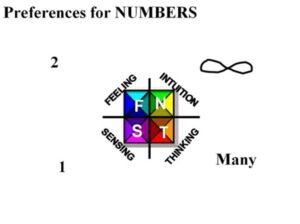
Sensing preference 1 thing at a time.
Feeling likes to compare 2
Intuition can handle and infinite number
Thinking likes to have many
Again using myself as an example, I know I often consider many, many things at once. When preaching or even talking to one other person I know I cannot expect a Dominate Sensing type to follow my convoluted train of thought. I have to put things in some step by step order. Even, again for example, as I am striving to do in this post!
When it comes to time
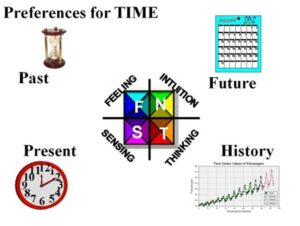
Sensing lives in the present
Feeling lives in the past
Intuition lives off in the future
Thinking like the Step be step of History
To reach our audience keep it all in mind. How does each Function gather data?
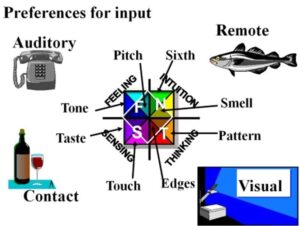
Sensing uses, you guessed it the senses especially touch and tast
Feeling picks up on the vibes
Intuition uses remote hunches and smell
Thinking relies on sight as in patterns
This is a very important one:needs
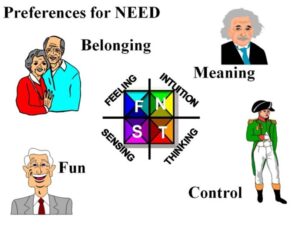
Sensing wants to have fun and enjoy life.
Feeling wants to belong.
Intuition is seeking meaning
Thinking desires control
Let me point out again. We all use all four functions. Thus touching on all these topics will register somewhat with everyone. However, if you have a read on the general makeup of your audience you can tailor your approach to the Dominate functions
Here is an example. I once went to a presentation by Zig Ziglar. Early on, he asked everyone to raise their arms as high as they could. Then, after a pause, he asked us to raise them higher. Sure enough, everyone was able to raise them higher. It was a fun exercise. I imagine the dominant sensors in the room enjoyed it the most. Yet, even I, with mostly unconscious Sensing got the point.
Here is a chart giving spiritual motivations for each of the 16 types. I found it on the internet without authorship. It seems accurate to me.

Again we can not address all these issues at once. However, first of all it is important to understand our own preference.Then equally important to realize people in the audience may mot share them. Also, over time we might choose to address, at least tangentially, each one over time.
Some people look at type through the lens of Temperament. Temperament theory takes adjoining Functions NF, NT, ST, SF.
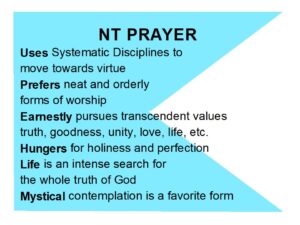

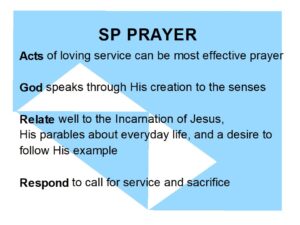
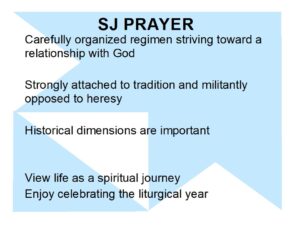
There is a good study on values that reflects difference in values by Temperament. Read the second chart left to right and top to bottom to see the order of preference for each Temperament. Once again consider your own preferences before evaluating you audience.
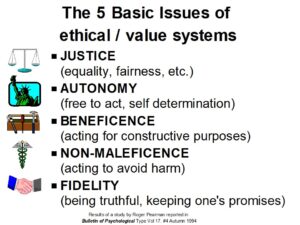
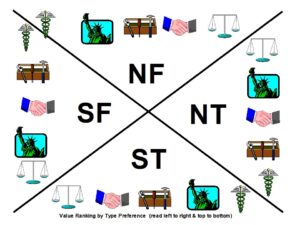
These ideas related to Personality Type will give you much to consider when preparing to address a congregation or any group. For more about Personality Type and Understanding People click here!